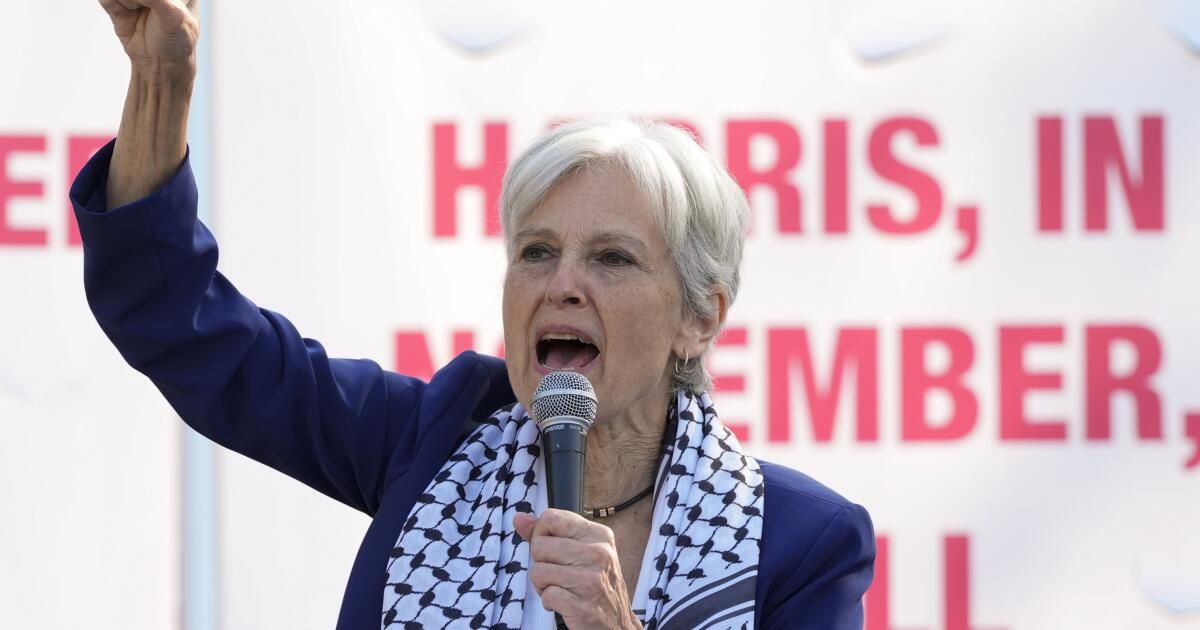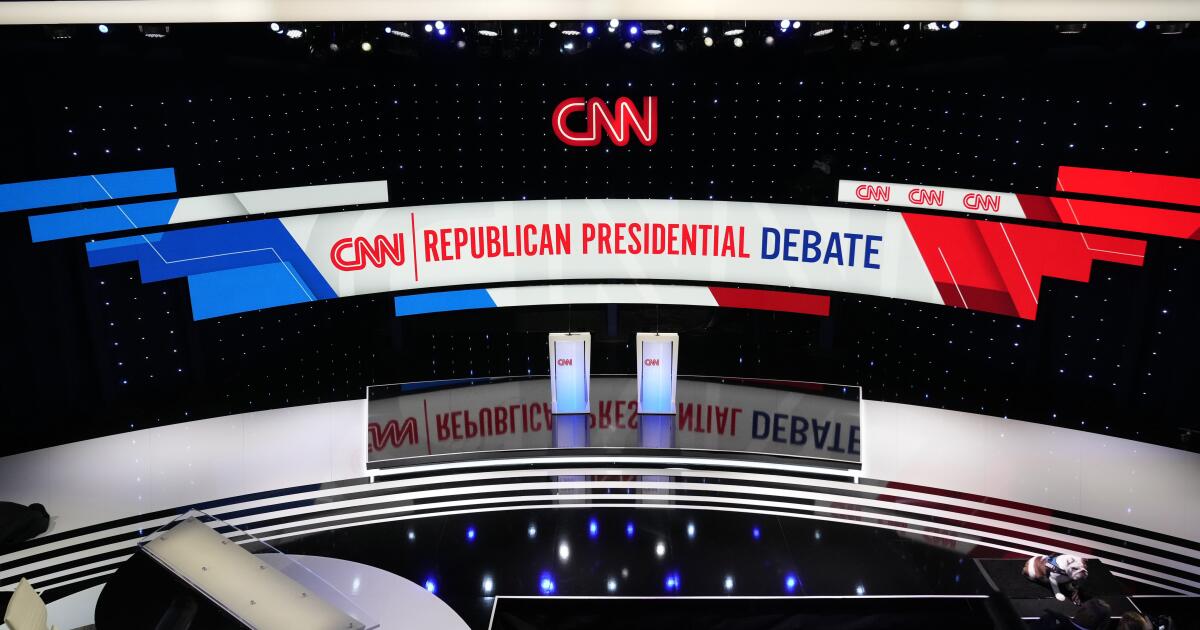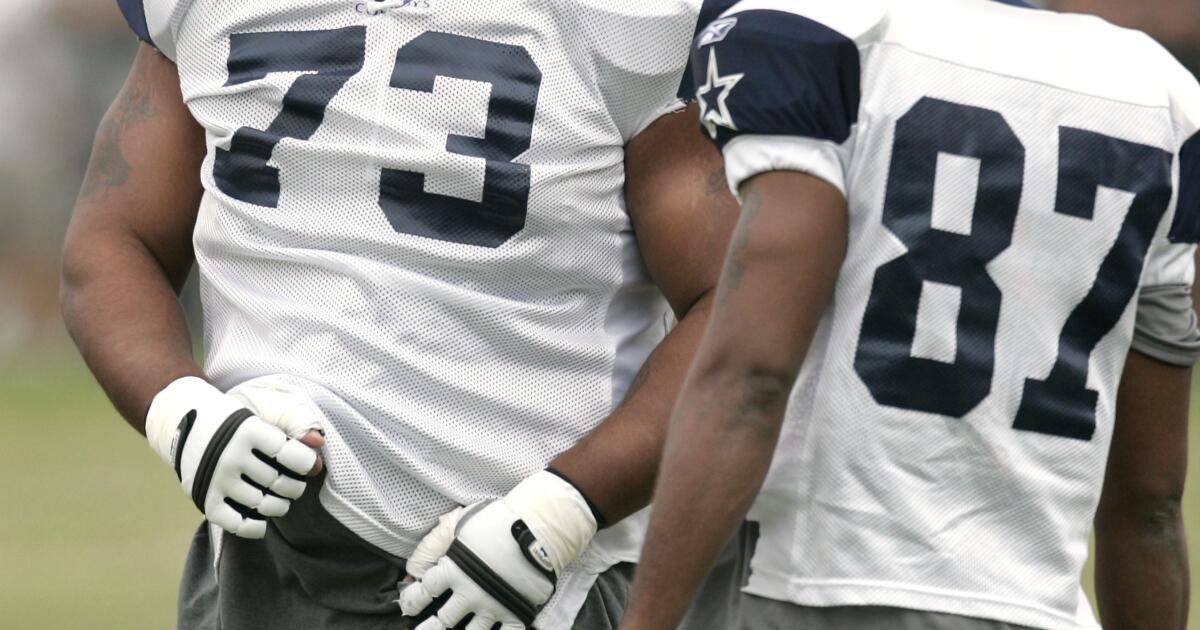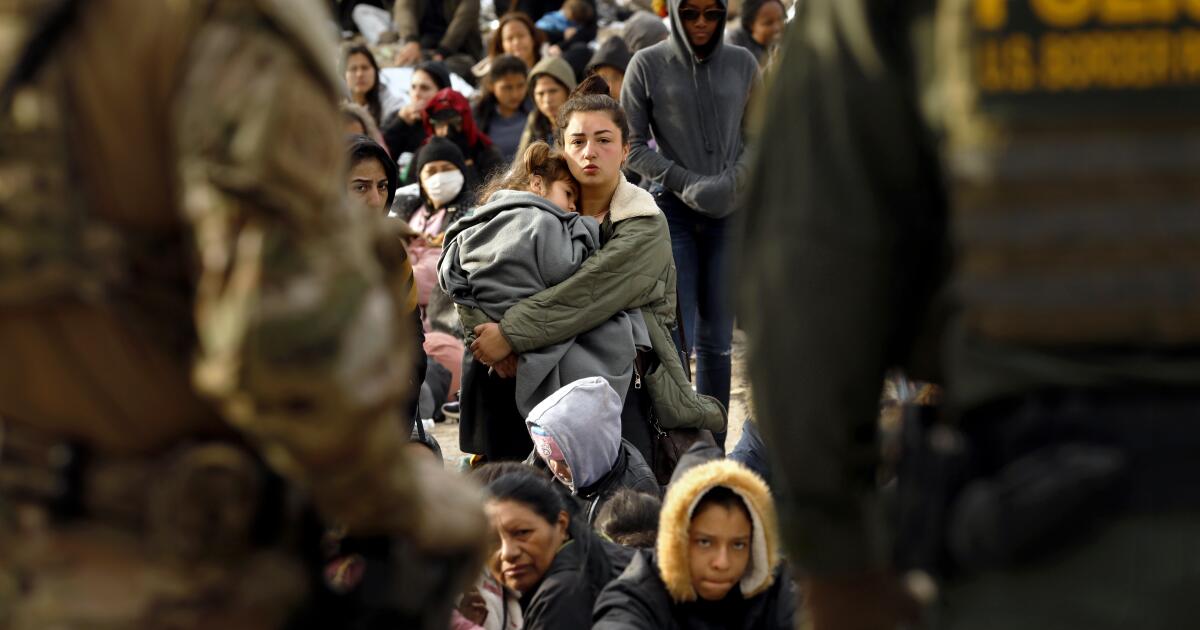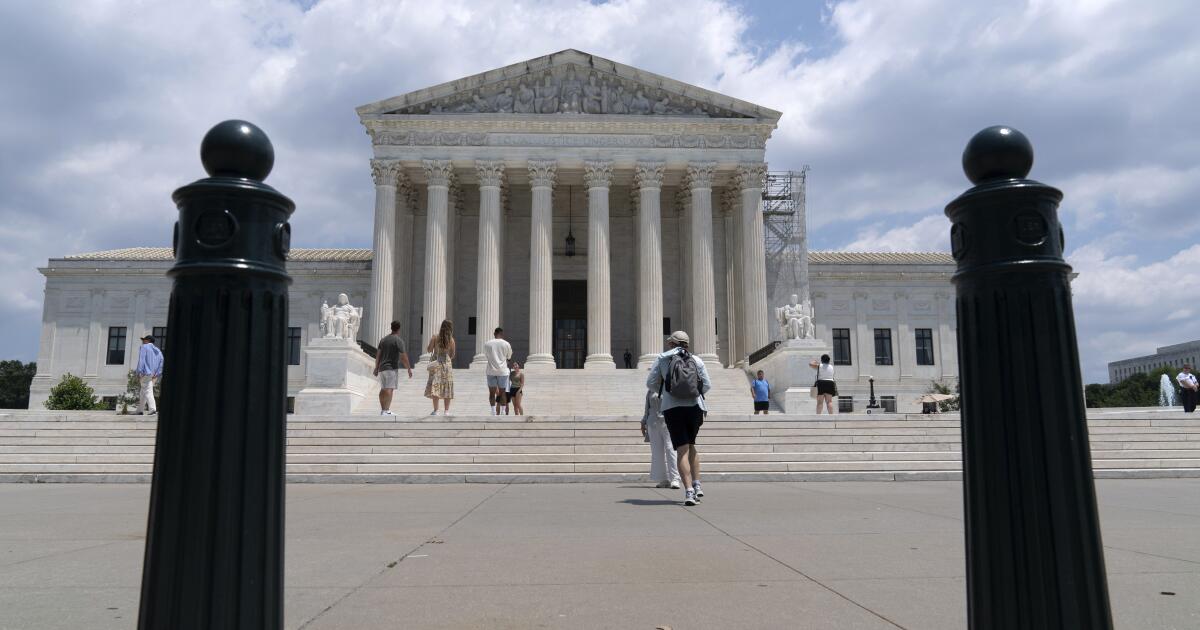The Supreme Court on Friday rejected an appeal by the Nevada Green Party, barring the progressive party from the state's presidential election in November.
The justices declined to intervene and overturn the state Supreme Court's decision, which ruled two weeks ago that the Green Party used the wrong form when gathering signatures. There were no dissents.
Washington attorney Jay Sekulow, who represented former President Trump during his first impeachment trial, filed an emergency appeal last week on behalf of the Green Party. He urged the justices to include the name of Jill Stein, the Green Party’s presidential candidate, on the state’s ballots.
Sekulow said the Green Party candidates had been “stripped off the ballot and Nevadans who would vote for them in this election are being deprived of their opportunity to do so.” He added that the state court’s decision violated the U.S. Constitution and its guarantee of due process.
Democrats have been concerned that Stein and the Green Party could attract support from thousands of left-leaning voters and potentially tip the outcome in Trump's favor in states where the two major parties are closely divided.
Sekulow's involvement in the case suggests conservatives agree.
Stein's campaign said she will be on the ballot in Wisconsin, Michigan, Pennsylvania, Georgia and Arizona.
In June, Nevada Democrats filed a lawsuit, claiming the Green Party was not complying with state rules for minor parties seeking a spot on the ballot. While Green Party organizers submitted nearly 30,000 signatures — far more than required — they used a form that did not require signers to certify that they were registered voters in their county.
In response, Green Party officials said they had relied on an email from a state election official that included a form for petition drives that did not require signers to certify that they were registered voters.
In August, a state judge ruled against Democrats, saying the Green Party was “in substantial compliance” with the law.
But the Nevada Supreme Court disagreed in a 5-2 decision, ruling on Sept. 6 that the Green Party had failed to qualify for the ballot. The majority called the disputed email “an unfortunate error” but noted that the state employee had directed the Green Party to the “Minority Party Qualification Guide,” which laid out the forms needed to gather signatures.
Nevada Secretary of State Francisco V. Aguilar told the court it was too late to add the Green Party candidates.
“Mail-in ballots for Nevada’s nearly 2 million active registered voters have already been printed, and any changes ordered at this time would require, at a minimum, redesign, re-preparation and re-review in all 17 Nevada counties,” he said.
As elections approach, courts are being asked to intervene in last-minute disputes.
Last month, the Republican National Committee urged judges to block 40,000 Arizona voters from casting ballots because they had registered using a federal form that did not require them to show a birth certificate or other proof of U.S. citizenship.
They lost due to dissents by Justices Clarence Thomas, Samuel A. Alito and Neil M. Gorsuch.
But the court, by a 5-4 vote, said the state could require proof of citizenship from its newly registered voters.

